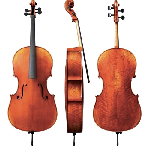Questo sito usa i cookie per fornirti un'esperienza migliore. Cliccando su "Accetta" saranno attivate tutte le categorie di cookie. Per decidere quali accettare, cliccare invece su "Personalizza". Per maggiori informazioni è possibile consultare la pagina .
Cerca nel sito
Categorie
- Didattica musicale
- Libretti D'opera
- Libri d'interesse musicale
- Libri per ragazzi
- Musica d'insieme
- Musica leggera
- Partiture
- Edizioni Armonica
- Edizioni Arpa
- Edizioni Basso elettrico
- Edizioni Canto
- Edizioni Chitarra
- Edizioni Clarinetto
- Edizioni Clavicembalo
- Edizioni Corno
- Edizioni Contrabbasso
- Edizioni Coro
- Edizioni Fagotto
- Edizioni Fisarmonica
- Edizioni Flauto dolce
- Edizioni Flauto traverso
- Edizioni Jazz
- Edizioni Mandolino
- Edizioni Oboe
- Edizioni Organo
- Edizioni Percussioni
- Edizioni Pianoforte
- Edizioni 2 Piani
- Edizioni Piano a 4 mani
- Sax Edizioni
- Edizioni Tromba
- Edizioni Trombone
- Edizioni Tuba
- Edizioni Ukulele
- Edizioni Viola
- Edizioni Violino
- Edizioni Violoncello
- Edizioni Teoriche
GLUCK ORFEO ED EURIDICE
| Prezzo: |
|
|---|---|
| Cod. art.: | 9780486273242 |
| Casa Editrice: | Dover |
Vienici a trovare in sede! |
|
| Disponibilità: | Non disponibile |
| Peso: | 2,000 Kg |
Servizi
StampaDescrizione
Based on the Greek legend of Orpheus, Gluck's Orfeo ed Euridice is one of the oldest operas in the repertoire. Its beautiful simplicity, poignant story, and moving arias, expressed in music largely pastoral and elegiac in tone, have made the work a favorite of audiences since its first production in 1762.
In a series of elegant, dramatic musical tableaux, the opera tells the story of Orpheus, a musician of ancient Greece, who pines after Euridice, his recently deceased lover. Inconsolable, Orpheus descends to the underworld where the depth of his sorrow and the intensity of his love for Euridice persuade the gods to release her. However, there is one condition: during the journey back to the world above, Orpheus must not look upon his lover. Torn by passion and fear of abandonment by Euridice, Orpheus cannot resist embracing his beloved — and loses her again. Because of the festive nature of the occasion for which the opera was written, however, the work ends on a happy note: the gods again take pity on Orpheus and restore Euridice to life once more.
By the time he composed Orfeo ed Euridice, Glick's style had fully assimilated (to quote D. J. Grout in A History of Western Music) "Italian melodic grace, German seriousness, and the stately magnificence of the French tragédie lyrique." Now music lovers can study and appreciate the complete score of this masterpiece, reprinted here from the authoritative full-score edition originally published in the Denkmäler der Tonkunst in Österreich.
In a series of elegant, dramatic musical tableaux, the opera tells the story of Orpheus, a musician of ancient Greece, who pines after Euridice, his recently deceased lover. Inconsolable, Orpheus descends to the underworld where the depth of his sorrow and the intensity of his love for Euridice persuade the gods to release her. However, there is one condition: during the journey back to the world above, Orpheus must not look upon his lover. Torn by passion and fear of abandonment by Euridice, Orpheus cannot resist embracing his beloved — and loses her again. Because of the festive nature of the occasion for which the opera was written, however, the work ends on a happy note: the gods again take pity on Orpheus and restore Euridice to life once more.
By the time he composed Orfeo ed Euridice, Glick's style had fully assimilated (to quote D. J. Grout in A History of Western Music) "Italian melodic grace, German seriousness, and the stately magnificence of the French tragédie lyrique." Now music lovers can study and appreciate the complete score of this masterpiece, reprinted here from the authoritative full-score edition originally published in the Denkmäler der Tonkunst in Österreich.











